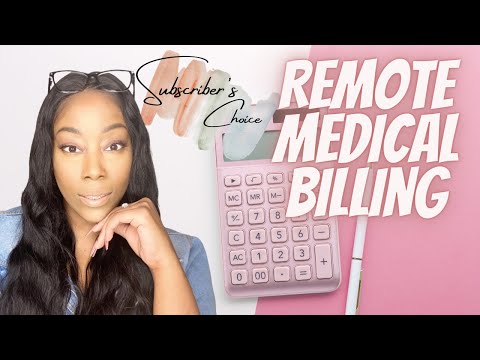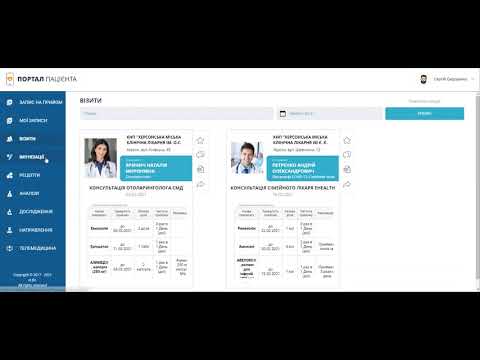How to Buy Health Insurance for Your Small Business
Contents [show]
If you have a small business, you may be wondering how to buy health insurance for your employees. There are a few different options available, and the best way to choose will depend on your specific needs and budget. Here are a few things to keep in mind as you shop for small business health insurance
Checkout this video:
Introduction
As a small business owner, you know that providing health insurance for your employees is an important part of attracting and retaining top talent. But you may not know where to start when it comes to finding the right plan for your business.
There are a few things to keep in mind when you’re shopping for small business health insurance
1. Know your budget.
2. Consider your employees’ needs.
3. Compare plans from different insurers.
4. Get help from an insurance broker or agent.
Keep reading for more details on each of these steps.
What to Consider When Purchasing health insurance for Your Small Business
If you’re self-employed or have a small business, you may be wondering how to buy health insurance There are a few things to consider before purchasing a health insurance policy for your small business. In this article, we’ll cover what you need to know about buying health insurance for your small business.
The size of your business
The number of employees you have is one of the most important factors in determining which health insurance plan is right for your small business. If you have fewer than 50 full-time equivalent employees, you may be eligible for the Small Business Health Options Program (SHOP) Marketplace. plans. SHOP plans are available through the federal government’s HealthCare.gov website.
If you have more than 50 full-time equivalent employees, you’ll need to purchase a plan through a private insurer or broker. You may also be subject to the employer shared responsibility provisions under the Affordable Care Act, which could require you to pay a penalty if you don’t offer health insurance to your full-time employees (and their dependents).
Even if you’re not required to offer health insurance, it may still be beneficial to do so. Offering health insurance can help you attract and retain talented employees, and it can also help improve your bottom line by reducing absenteeism and increasing productivity.
The needs of your employees
Employees’ Health Insurance Needs
Your employees are likely to have different health insurance needs than you do. For example, if you are young and healthy, you may be able to get by with a high-deductible health plan (HDHP). But if you have a family or a chronic health condition, you will probably need a plan with a lower deductible and higher monthly premiums.
To get an idea of what your employees might need, consider these factors:
-Family status: Do they have spouses or children? Are they planning on starting a family?
-Age: Younger employees are generally healthier than older employees and may be able to get by with less comprehensive coverage.
-Health status: Do they have any chronic conditions or pre-existing conditions? Do they take medication on a regular basis?
-Hobbies and lifestyle: Do they engage in risky activities like extreme sports or rock climbing?
Your budget
As you begin to evaluate health insurance options for your small business, it’s important to have a realistic idea of what you can afford to spend. Keep in mind that the monthly premium is not the only cost you will incur; you will also be responsible for paying deductibles and copayments/coinsurance when you receive care.
To get an idea of how much different health insurance plans would cost your business, look at the premium rates for each plan and compare them to the average premium in your state. You can also use a premium calculator or ask a broker or insurer for quotes based on your company’s size and location.
Once you have an idea of the monthly costs, take a look at your business’s budget and decide how much you can realistically afford to set aside each month to pay for health insurance. Keep in mind that you may be able to deduct the cost of premiums from your taxes, which can help offset some of the expense.
How to Get the Best Rates on Health Insurance for Your Small Business
When you are shopping for health insurance for your small business, there are a few things you need to keep in mind. First, you need to make sure that you are getting the best possible rate. Second, you need to make sure that you are getting the coverage that you need. Lastly, you need to make sure that you are getting the most bang for your buck.
Compare quotes from multiple insurers
As a small business owner, you know that shopping around for the best deals is one of the keys to success. The same is true when it comes to buying health insurance for your small business.
There are a number of ways to get quotes from multiple insurers, including using an insurance broker, contacting insurers directly, or using an online comparison tool.
Brokers are typically experienced in the health insurance market and can provide you with quotes from multiple insurers. They also have the added benefit of being able to offer advice and guidance on which policy might be best for your business.
Contacting insurers directly is another option, but it can be time-consuming. And, because each insurer has different underwriting criteria, it can be difficult to compare policies side-by-side.
An online comparison tool like eHealthInsurance lets you get quotes from multiple insurers quickly and easily, so you can compare policies and find the one that’s right for your business.
Consider a group health insurance plan
A group health insurance plan is a type of health insurance coverage that is provided to a group of people, usually through an employer. Group health insurance plans are typically less expensive than individual health insurance plans, and they often offer a wider variety of benefits and coverage options. If you own a small business with two or more employees, you may be eligible for a group health insurance plan.
Use a health insurance broker
health insurance broker is a professional who helps small businesses find and choose the right health insurance plan for their needs. A good broker will work with you to understand your business’s specific needs and then help you compare plans from different insurers to find the one that offers the best coverage at the best price.
Brokers are independent agents who are not affiliated with any one insurance company, so they can offer impartial advice. They also have access to a wide range of plans from different insurers, which gives you more options to choose from.
There are a few things to keep in mind when working with a broker:
-Make sure the broker is licensed in your state. You can verify this by checking with your state’s insurance department.
-Make sure the broker belongs to a professional organization such as the National Association of Health Underwriters or the National Association of Insurance Commissioners. These organizations have strict ethical standards that brokers must abide by.
-Get everything in writing. This includes the broker’s fee, which is typically a percentage of the premium (the monthly cost of your insurance plan).
Working with a health insurance broker is one of the best ways to get started when you’re shopping for small business health insurance. They can help you understand your options and find a plan that meets your needs and budget.
How to Use Health Insurance to Attract and Retain the Best Employees
Health insurance is a vital part of any benefits package you offer your employees. It is one of the most important factors that employees consider when deciding whether to accept a job offer. Offering health insurance shows that you value your employees and their well-being. It also makes your business more attractive to potential employees. In this article, we will discuss how to use health insurance to attract and retain the best employees.
Offer a competitive benefits package
As a small business owner, you know that offering a competitive benefits package is essential to attracting and retaining the best employees. But what you may not know is that health insurance is an important part of that package.
Health insurance is not only a valuable benefit for your employees, but it can also be a tool to help you attract and retain the best talent. Here are a few things to keep in mind as you shop for health insurance for your small business:
1. The type of health insurance you offer can be a deciding factor for job candidates.
2. Health insurance is an important part of employee benefits packages.
3. Offering health insurance can help you attract and retain the best employees.
4. There are a variety of health insurance plans available, so it’s important to find one that meets the needs of your business and your employees.
5. Working with an experienced broker can help you find the right health insurance plan for your business.
Educate your employees on their health insurance options
As a business owner, you know that providing health insurance is one of the best ways to attract and retain the best employees. But did you know that it’s also important to educate your employees on their health insurance options?
Your employees need to understand how their health insurance works and what their options are. By providing them with this information, you’ll help them make the best decisions for their health and their financial security.
Here are a few tips on how to educate your employees about their health insurance:
1. Be clear about what your company offers.
Make sure your employees understand what coverage your company provides. If you offer multiple plans, explain the differences between them. And be sure to let them know about any changes to the plans, such as new benefits or higher premiums.
2. Encourage them to shop around.
Your employees should shop around for health insurance just like they would for any other product or service. They should compare plans and costs to find the coverage that’s right for them.
3. Help them understand their options.
Explain the different types of health insurance coverage available, such as HMOs, PPOs, and POS plans. Help them understand terms like “deductible” and “co-pay” so they can make informed decisions about their coverage.
4. Encourage them to use their benefits .
Many employees don’t take full advantage of their health insurance benefits because they don’t understand how they work. Help your employees get the most out of their coverage by encouraging them to use their benefits, such as preventive care, annual check-ups, and dental and vision care.
Review your health insurance plan regularly
As a small business owner, you know that offering health insurance is one of the best ways to attract and retain quality employees. But did you know that you could be paying too much for your health insurance?
The truth is, health insurance rates can fluctuate significantly from year to year, so it’s important to review your plan regularly to make sure you’re getting the best value for your money.
Here are a few tips to help you get the most out of your health insurance plan:
1. Review your plan annually. Make sure to review your health insurance plan at least once a year to ensure that it still meets your needs. Keep in mind that your employees’ needs may change over time, so it’s important to stay flexible.
2. Shop around. Don’t be afraid to shop around for a new health insurance plan if you feel like you’re paying too much for your current one. There are a number of websites that allow you to compare plans from different providers, so take advantage of them!
3. Negotiate with your provider. If you’re happy with your current health insurance provider but think you’re paying too much, try negotiating a better rate. Many providers are willing to work with their customers in order to keep their business, so it’s definitely worth a shot!
4. Offer incentives for healthy behavior. Many health insurance plans offer discounts or other incentives for healthy behavior, such as quitting smoking or losing weight. Encouraging your employees to take advantage of these programs can help reduce your overall costs.
By following these tips, you can be sure that you’re getting the most out of your health insurance plan and providing quality coverage for your employees at an affordable price.
Conclusion
Now that you know the basics of how to buy health insurance for your small business, you can start shopping for the right policy. Be sure to compare quotes from multiple insurers to get the best rate.
In addition to price, also consider the insurers’ financial stability, coverage options, and customer service when choosing a policy. Once you have selected a policy, be sure to keep up with any updates or changes so you can be sure your business is always properly protected.







